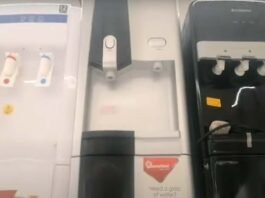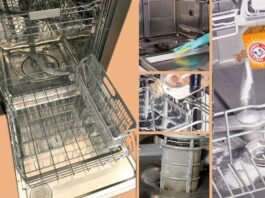Bottleless water dispensers, also known as point-of-use water dispensers, are innovative devices designed to provide convenient access to clean drinking water without the need for traditional water cooler bottles. Unlike conventional water coolers that require heavy bottles to be replaced periodically, bottleless dispensers are directly connected to a building’s water supply, delivering filtered and purified water on demand.
These dispensers come in various models, including countertop, freestanding, and under-sink units, catering to different space and usage requirements. By eliminating the hassle of bottle replacements and reducing plastic waste, bottleless water dispensers offer a sustainable and eco-friendly solution for hydration needs in homes, offices, schools, and other settings.
Features and Components:
Bottleless water dispensers are equipped with several key features and components to ensure efficient water filtration, cooling or heating, and dispensing. Most models include advanced filtration systems that remove impurities and contaminants from the water, producing high-quality drinking water that is safe and refreshing. Additionally, these dispensers often feature cooling and heating mechanisms to adjust the water temperature according to preference.
Depending on the model, users can choose from different dispensing options, such as push-button controls or touchless sensors, for added convenience. With durable construction and reliable components, bottleless water dispensers deliver consistently great-tasting water with minimal maintenance requirements.
Filtration:
One of the key features of bottleless water dispensers is their filtration system. These systems typically include multiple stages of filtration, such as sediment filters, activated carbon filters, and reverse osmosis membranes, to remove impurities and contaminants from the water. As a result, the water dispensed from these units is not only free from chlorine, sediment, and other common pollutants but also has a fresh and clean taste.
Another important feature of bottleless water dispensers is their versatility. These units come in various sizes and designs, ranging from countertop models suitable for small office spaces to freestanding units ideal for high-traffic areas like schools, gyms, and healthcare facilities. Some models even offer hot and cold water options, providing users with instant access to both chilled and hot water for beverages and cooking.
In addition to their convenience and versatility, bottleless water dispensers offer several benefits compared to bottled water coolers. Firstly, they eliminate the need for single-use plastic bottles, which reduces plastic waste and helps minimize the environmental impact of plastic pollution. By using a bottleless dispenser, individuals and organizations can contribute to sustainability efforts and promote eco-friendly practices.
Furthermore, bottleless water dispensers can save time and money in the long run. Since they are directly connected to the water supply, there is no need to schedule bottle deliveries or store bulky bottles, freeing up valuable space and resources. Additionally, the cost of purchasing and maintaining a bottleless dispenser is often lower than that of traditional bottled water coolers, making it a cost-effective solution for businesses and households alike.
Benefits of Bottleless Water Dispensers:
Bottleless water dispensers offer numerous benefits compared to traditional bottled water coolers. One of the primary advantages is cost savings, as users no longer need to purchase expensive bottled water or pay for bottle delivery services. Additionally, bottleless dispensers eliminate the need for storing and handling heavy water bottles, freeing up valuable space and reducing clutter. From a sustainability standpoint, these dispensers help reduce plastic waste and carbon emissions associated with the production and transportation of bottled water. By providing a continuous supply of clean and filtered drinking water, bottleless dispensers promote hydration and overall well-being for users while minimizing environmental impact.
Installation and Maintenance:
Installing a bottleless water dispenser is a straightforward process that typically requires connecting the dispenser to an existing water line. Depending on the model and installation location, professional installation may be recommended to ensure proper plumbing connections and optimal performance. Once installed, bottleless water dispensers require minimal maintenance, primarily consisting of periodic filter replacements and routine cleaning. Filter replacement intervals vary depending on water quality and usage, but most manufacturers provide clear guidelines for maintenance schedules. By following recommended maintenance procedures, users can ensure consistent water quality and prolong the lifespan of their bottleless water dispenser.
Applications and Use Cases:
Bottleless water dispensers are versatile devices suitable for a wide range of applications and environments. In commercial settings such as offices, schools, healthcare facilities, and gyms, these dispensers provide convenient access to clean drinking water for employees, students, patients, and visitors. At home, bottleless dispensers offer a convenient solution for hydration needs in kitchens, break rooms, and home offices. Outdoor events, construction sites, and temporary workspaces can also benefit from the portability and versatility of bottleless water dispensers. With their compact size and easy installation, these dispensers can be tailored to meet the specific needs of any environment or situation.
Health and Safety Considerations:
Ensuring the health and safety of users is a top priority when selecting a bottleless water dispenser. These devices are equipped with advanced filtration systems designed to remove impurities, contaminants, and microorganisms from the water, providing clean and safe drinking water. Many bottleless water dispensers undergo rigorous testing and certification to meet industry standards for water quality and safety.
Additionally, regular maintenance, including filter replacements and cleaning, is essential for maintaining optimal performance and preventing bacterial growth. By following manufacturer guidelines and investing in quality filtration systems, users can enjoy peace of mind knowing that their bottleless water dispenser delivers pure and refreshing drinking water.
Comparison with Traditional Water Coolers:
When comparing bottleless water dispensers to traditional bottled water coolers, several factors come into play, including cost, convenience, and environmental impact. While traditional water coolers require the purchase and storage of bulky water bottles, bottleless dispensers offer a more cost-effective and sustainable solution by eliminating the need for bottled water delivery services.
Additionally, bottleless dispensers provide a continuous supply of clean drinking water without the hassle of bottle replacements, making them more convenient for users. From an environmental perspective, bottleless water dispensers significantly reduce plastic waste and carbon emissions associated with bottled water production and transportation, making them a greener and more eco-friendly choice.
Pros of Bottleless Water Dispenser:
- Environmentally friendly: Bottleless water dispensers eliminate the need for single-use plastic bottles, reducing plastic waste and promoting sustainability.
- Cost-effective: Over time, bottleless water dispensers can be more cost-effective than bottled water coolers, as they eliminate the need for purchasing and storing bottled water.
- Convenience: Bottleless water dispensers provide a continuous supply of clean and fresh drinking water without the need for bottle deliveries or storage.
- Healthier water: Bottleless water dispensers often use advanced filtration systems to remove impurities and contaminants from the water, providing users with cleaner and healthier drinking water.
Cons of Bottleless Water Dispenser:
- Installation requirements: Bottleless water dispensers require access to a potable water source and a power outlet for operation, which may limit placement options.
- Initial setup costs: While bottleless water dispensers can be cost-effective in the long run, they may require higher upfront costs for installation and setup compared to bottled water coolers.
- Dependency on infrastructure: Bottleless water dispensers rely on the availability of a reliable water supply, making them less suitable for areas with limited access to clean water or unstable infrastructure.
- Maintenance requirements: Bottleless water dispensers require regular maintenance, including filter replacements and sanitization, to ensure optimal performance and water quality.
In Conclusion:
Bottleless water dispensers offer a convenient, cost-effective, and environmentally friendly solution for providing clean drinking water in various settings. With their advanced filtration systems, cooling/heating mechanisms, and dispensing options, these devices deliver high-quality water on demand, promoting hydration and well-being for users.
By eliminating the need for bottled water and reducing plastic waste, bottleless dispensers contribute to a more sustainable future while offering practical benefits for homes, offices, schools, and other environments. With proper installation, maintenance, and consideration of health and safety factors, bottleless




